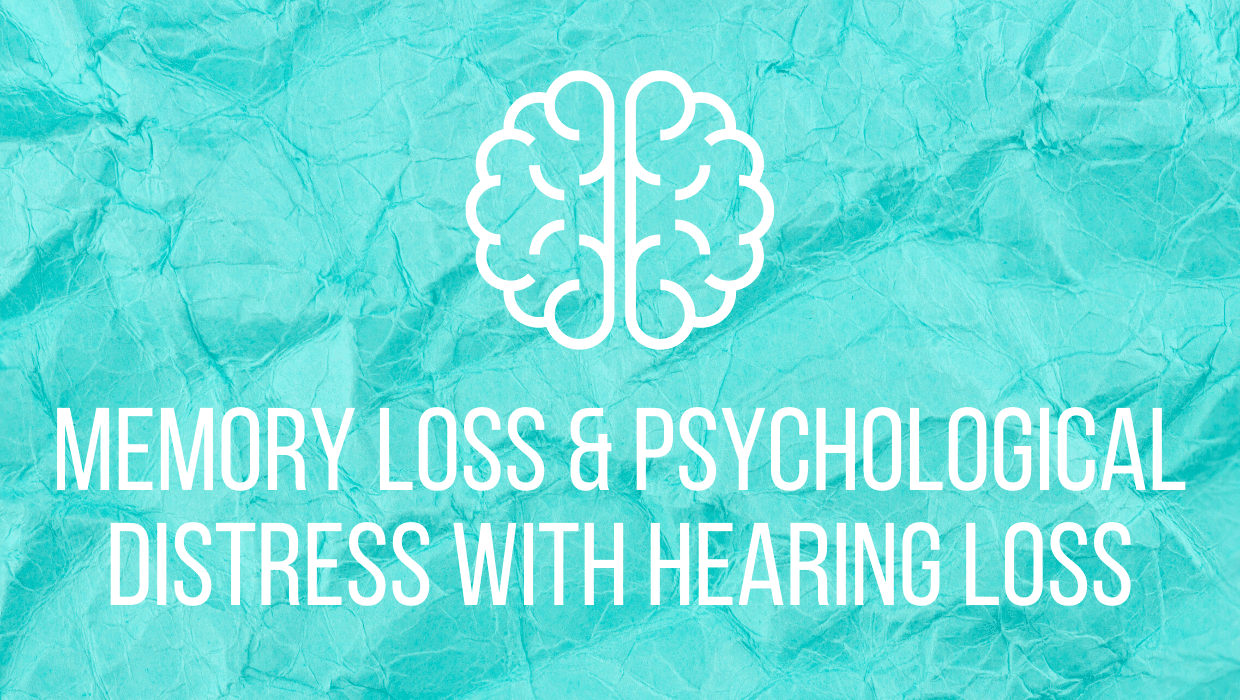Hearing loss is a health issue that doesn’t just limit your hearing. Medical studies have shown that hearing loss, especially when left unaddressed, can elevate the risk of a wide range of other health issues from anxiety and depression to heart disease and dementia. A recent study from Japan looked at a large group of participants, age 65 and older, and found data that speaks to the extent that hearing loss affects our lives.
The Japanese study, published in Geriatrics Gerontology International, analyzed data from 137,723 surveyed participants who were 65 or older and lived at home. The study excluded those with a medical diagnosis of dementia. In that population, around 9% reported hearing loss while 81% reported healthy hearing. The analysis found that those living with hearing loss showed a marked increase in mobility limitations, psychological distress and memory issues.
These findings support the body of research showing that the impact of hearing loss ripples through many parts of our overall health.
HEARING LOSS AND MOBILITY
The Japanese study examined how subjects participated in outdoor activities. For those without hearing loss, 9.5% stated they had significant limitations to their outdoor activities. Those with hearing loss reported nearly 3 times as much limited mobility, with 28.9% saying they had limitations. These statistics highlight the role hearing loss plays in understanding and engaging with our surroundings, and the changes it precipitates in mobility.
Hearing loss creates many conditions that work in tandem to rein in mobility. To start with, hearing loss makes communication more difficult. How we communicate is a primary skill we use to navigate the world around us. Hearing loss can create confusion and distress, especially when confronting unfamiliar areas or situations.
Hearing loss can also put pressure on our social relationships making meaningful communication much harder and eroding connections to friends and family. Untreated hearing loss has long been linked to social isolation which can also restrict mobility, making going out less desirable.
HEARING LOSS AND ANXIETY
When asking study subjects about psychological distress, the Japanese research team uncovered another striking disparity in the two groups. Out of those with healthy hearing, 19.3% reported distress while those with hearing loss reported it at twice the rate – 39.7% saying that they experienced psychological distress. These numbers help solidify an established connection between hearing loss and elevated anxiety.
Like mobility, the increased anxiety in patients with hearing loss is rooted in how well we feel we understand the world around us. Untreated hearing loss destabilizes our activity patterns, including our connection to favorite places and people. Negotiating hearing loss adds an extra burden to travel and entertainment. The added uncertainty of compromised comprehension can leave us feeling frustrated or fearful.
HEARING LOSS AND MEMORY
One of the most dramatic findings from the Japanese study was the incidence of memory problems. When asked, 5.2% of healthy hearing participants reported having significant memory issues. In contrast, 37.7% of those with hearing loss cited memory problems – roughly 7 times more than their healthy hearing peers!
Memory and cognitive functioning is greatly affected when hearing loss is left unchecked – the hearing loss places a huge burden on cognitive resources (which is thought to be a major part of the connection between hearing loss and the extreme cognitive decline of dementia).
Hearing loss creates ongoing puzzles for the mind to interpret. When we can’t fully understand incoming sounds, we have to scramble to piece together meaning from fragments. To undertake this work and compensate for hearing loss, our brain pulls attention and focus away from other important cognitive tasks. The consistent shortchanging of other areas of cognition may establish the patterns that lead to or worsen cognitive problems affecting everything from coordination and balance to thought and memory.
FINDING ANSWERS
Just as the Japanese research has found, hearing loss creates health disparities that are hard to ignore. The good news is, that while hearing loss cannot be cured, it can be treated effectively. Using hearing aids and assistive devices helps make hearing easier and reduces the stress hearing loss places on our holistic health.
Ready to learn more about managing your hearing issues? Advanced Hearing Solutions can help you find answers!

